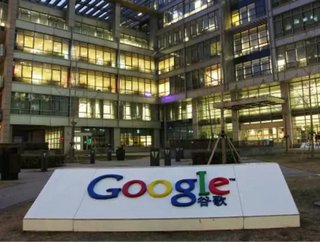Google delivery's shrewd diversification strategy

Written by David Upton (pictured right), Managing Director at leading provider of mobile data solutions for the transport, retail, healthcare and field service sectors, DA Systems.
Have you heard the one about same day couriers, driverless cars and robo taxis? - it’s all about the (Google) tech. Whatever’s next, flying cars? (Well perhaps automated drones are the future of deliveries, but that’s another story).
Online retailing in the UK is set to reach a total sales value of £87 billion in 2013, a 12 percent year-on-year growth, according to researchers IMRG Capgemini. As e-commerce matures and customer demand mushrooms, same-day delivery services will become more commonplace and are likely to become more cost-effective as competition grows. Increasing numbers of courier companies are now entering the same day delivery market. And established courier companies are diversifying with new collections services. YodelDirect for example has just announced that for the first time it will collect from homes and individuals rather than just businesses.
Courier companies either compete on price, or by offering a more exclusive service than their rivals - perhaps by providing very accurate delivery time windows or a luxury, ‘branded’ service to match the goods being delivered.
Regardless of the courier company’s individual business model, the key ingredient for a profitable same-day delivery or collections service is technology. As Google excels at exploiting this, the company’s anticipated move into this market is less surprising than it first appeared. In fact many brands are looking at the ‘get it now’ attitude, including eBay that offers a same-day delivery service with a one-hour window in selected cities in the US. Offering a same-day delivery option is essential for any e-commerce company/retailer and having this level of convenience is helping to make e-commerce more mainstream. One key driver behind the consumer demand for such fast delivery services is the rise of m-commerce (mobile commerce). If you can buy goods anywhere on the go it becomes a natural expectation to have them delivered almost immediately too.
Reports of Google’s strategy were originally published earlier this year and it is now expanding operations in the US, so look out for announcements in Europe in the near future. Maybe. Given the USA has over 39 times as much land as the UK, and its population density is over seven times lower – this means the average distance that goods have to travel are far greater. If they can make it work in the US, then surely there’s a great business case for the UK.
Google’s broad growth strategy means the brand touches many parts of our business and home lives, and it as adept at applying the technology to specific problems, whether perceived or not. However you look at it, Google will soon ‘own’ the complete ecommerce buying process, from search and browsing, through checkout and payment to fulfilment, and final delivery to your doorstep. Same-day delivery also opens the door to selling advertising and other technology to retailers, and building a loyal following of consumers who see Google or eBay as their daily shopping destination.
It seems the so-called Google Shopping Express service is not only perfectly viable, but demonstrates a logistical diversification strategy focussed on technology and data. Technology underpins a profitable same day courier service - from the courier logistics side right through to the communication with the consumer. You need real-time data feeds to manage the doorstep interface and real-time integration between retailers and delivery agents to make it work. Of course Google is already ahead of its e-commerce rivals with mapping technology – something that most courier and delivery companies use anyway.
In addition, Google can now merge online and offline data. A delivery service provides Google with the ability to merge offline consumer data with the comprehensive data it already captures about consumer behaviour online. Consumers can expect more targeted product advertising and relevant communications in future.
So how do you fund a same-day delivery service? The rationale behind Google’s business model seems sound – a subscription-based delivery programme - directly aimed at Amazon’s Prime service, but for slightly less. In growing their respective same-day delivery programs it has become a fierce race between the US tech giants.
By linking this with existing Google technology, that of driverless cars, and the predicted ‘connected car’ future, does this mean we will have driverless couriers in a fully automated process? More recently it’s been reported that Google is planning robo-taxis, so don’t dismiss the idea immediately. Separately to Google, a network of automated drones could feasibly be delivering your small packages, but it remains to be seen if this idea will ‘take off’(!).
It’s certainly exciting times for doorstep deliveries - increased competition, diversification, better and faster customer service, new opportunities for e-commerce brands and interesting predictions for an automated future - all ‘driven’ by technology, in a quite literal sense.






